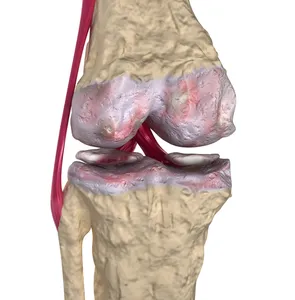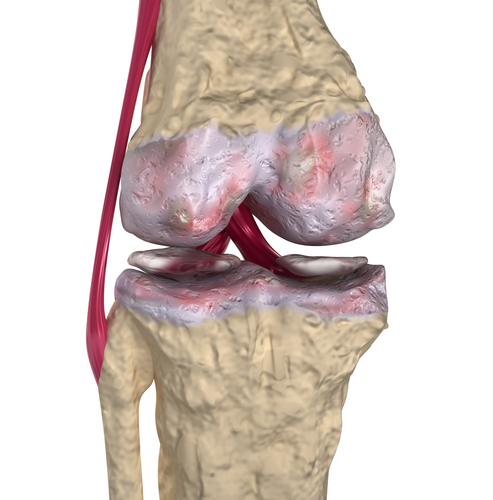
- Swelling around the knee joint
- Pain whenever pressure is placed on the knee
- Deep aching and pain following exercise (i.e., walking up stairs)
- Stiffening after long periods of inactivity, for instance, first thing in the morning or after sitting at a desk all day, as the joint warms up
- The sound of rubbing together or crackling deep in the knee joint caused by bony spurs surrounding the movement point
If you are experiencing the symptoms listed above as well as any of the following indicators, you may suffer from OAK:
1. Obesity
Excessive weight and stress on the knee joints increases the risk of OA of the knee if it’s allowed to persist. Maintaining a healthy weight will take pressure off the knees and help prevent osteoarthritis of the knee and knee joint damage.
2. Pre-existing injury
If you’ve previously broken or injured your knee you are at increased risk of developing OA of the knee.
3. Heredity
Individuals with existing joint abnormalities and those who suffer defective cartilage, may suffer deterioration of joints and develop osteoarthritis.
4. Repetitive stress on the knees
Particularly those who squat or kneel for lengthy periods, either for work or sport.



